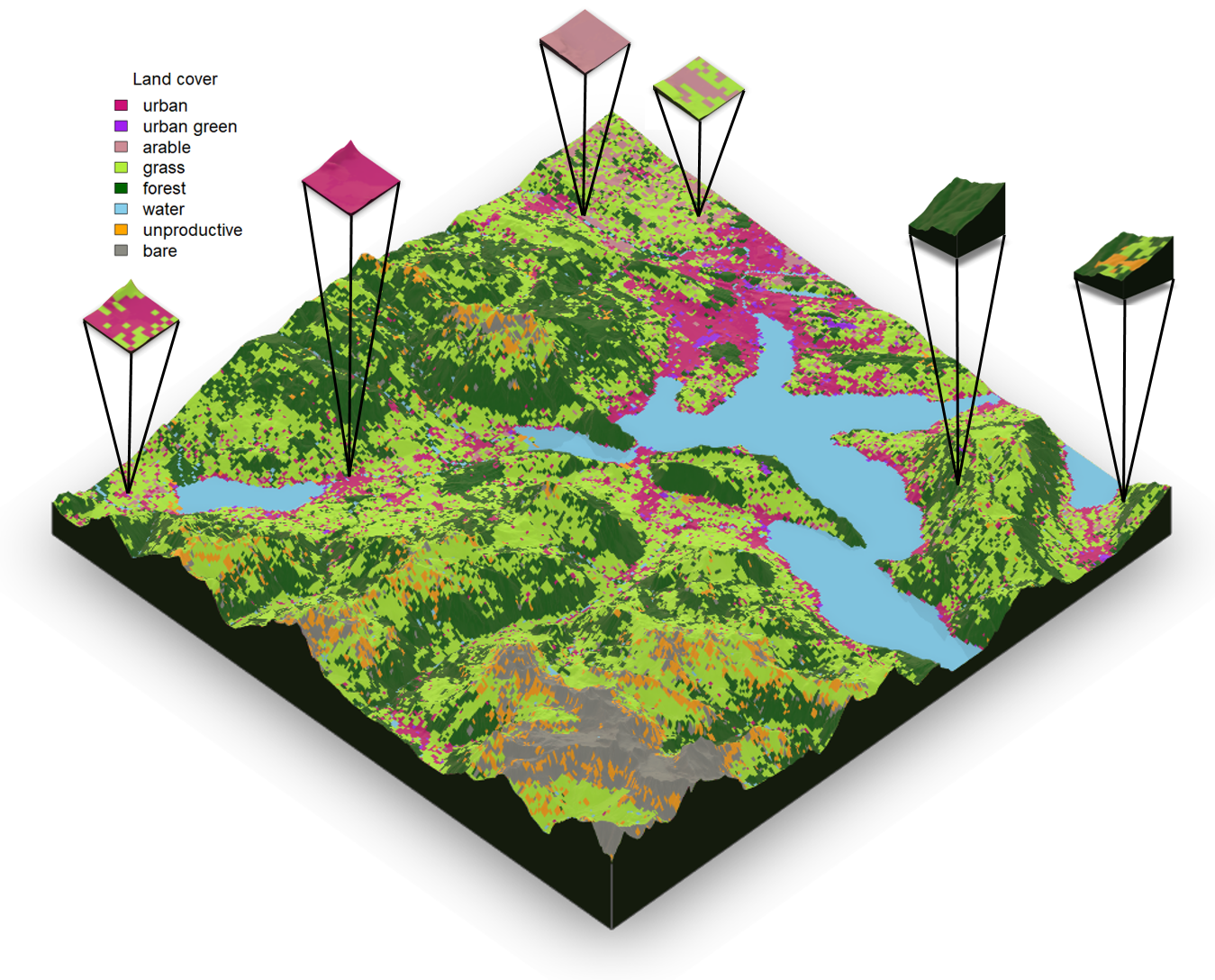Navigation auf uzh.ch
Navigation auf uzh.ch

It is well-established that biodiverse ecosystems generally function better than monocultures. Pascal Niklaus and Jacqueline Oehri, with colleagues Gabriela Schaepman-Strub and Bernhard Schmid of the URPP GCB, show that the same is true on a larger scale published in Nature Communications today.
A mix of different land-covers including grassland, forest, urban areas and water bodies improves the functioning and stability of a landscape – irrespective of the plant species diversity, region and climate.
They investigated how different land-cover areas affect vegetation growth in large landscapes. Using aerial imagery, they assessed land-cover in 4,974 landscape plots from all regions in Switzerland and satellite data to determine plant productivity in these landscapes over a period of 17 years.
The team found that landscapes consisting of a mosaic of different land uses were more productive than the average landscape with uniform use. This positive effect of land-use diversity and productivity held over many regions, climatic conditions and altitude ranges. Similar to the way in which plant species interact in a small patch of vegetation and thereby improve the functioning of the plant community, areas with different land uses interact and improve the functioning of the entire landscape. This means that in such large landscapes, novel mechanisms must be at play that do not operate in the small study plots traditionally examined in biodiversity experiments.
The way in which different land uses are spatially interwoven thus promotes the functioning of landscapes, in addition to the established beneficial effects of high species diversity. The study’s novel approach enables landscapes to be analyzed on a scale that is relevant for regional planning and conservation policies.
Visit the UZH Media site to read more.
Contact Prof Dr. Pascal Niklaus or Dr. Jacqueline Oehri for more information.
Oehri, J., Schmid, B., Schaepman-Strub, G. et al. Terrestrial land-cover type richness is positively linked to landscape-level functioning. Nature Communications 11, 154 (2020) doi:10.1038/s41467-019-14002-7
Debra Zuppinger-Dingley and